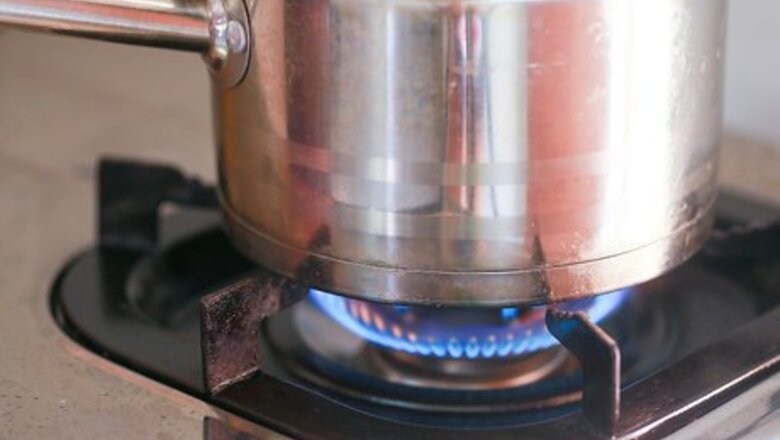
views
X
Research source
There are less dubious reasons you may need to steam open an envelope, however. Perhaps you have envelopes which have become stuck tight, or you just realised you were had gotten letters or card mixed up. There are a number of ways to open an envelope so that it can be re-sealed and you can keep your mistakes hidden.
Steaming it Open over the Stove
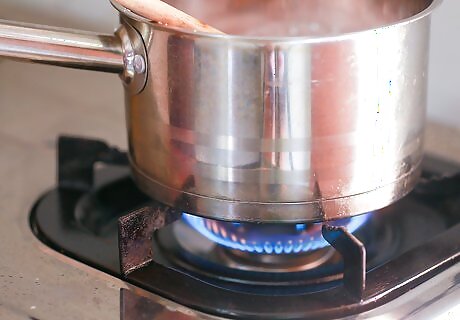
Put a pot of water on to boil. You don't really need much water, but try to put an inch-and-a-half in the bottom of the pot, and put it on the heat. If you use too much water, it will take forever to boil, but don't use too little, or it'll evaporate before you can open the envelope. As you wait for the water to boil get ready with your envelope.
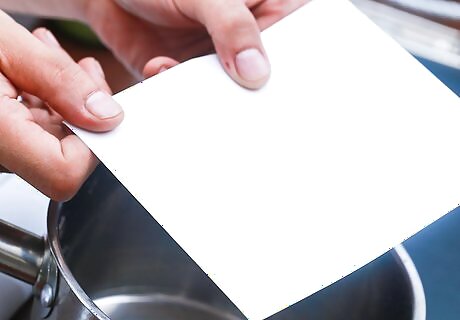
Hold the envelope over the boiling water. With the side of the envelope with the opening flap facing down towards the water, find a spot where you can gently ease your thumb under the flap. A good spot is at the very end of either side of the flap, because some envelopes don't have any glue there.
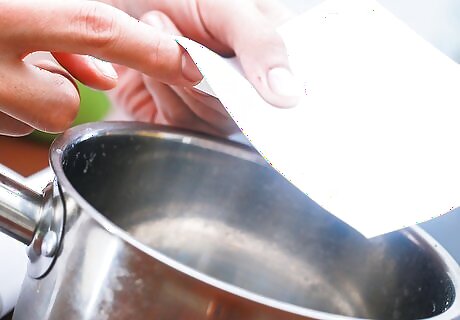
Apply constant light pressure on the flap. Be gentle, you don't want to tear the paper. Once the steam saturates the envelope (it will feel hot, damp and limp), the glue will melt, and the envelope will open. Don't hold the paper in the steam for too long. You'll get it all soggy and give the game away. Hold the envelope over the steam for about 15 seconds, then start trying to open it, returning to the steam if it is still stuck. Consider using a skewer instead of your thumb or finger to peel the flap up. It allows for more precise control and is especially effective if you place the skewer vertically underneath the flap at one end and twirl it along the length of the flap.
Steaming it Open with A Kettle
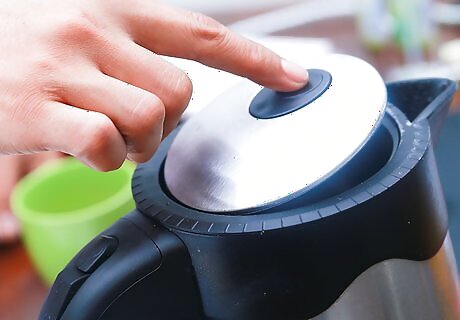
Put the kettle on to boil with plenty of water. Instead of using a stove, you can use a kettle. This technique tends to create a greater quantity of steam that is hotter. It also avoids the possibility of scorching the edges of your envelope if you have a gas stove.

Hold the envelope a little away from the spout. Don’t hold it too close and try to get an even distribution of steam across the seal. You can place a spoon into the spout of the kettle to try to have control over the direction of the exiting steam. If it looks like it is getting too wet, move it away and be patient, you don’t want to have wrinkles give the game away. As the steam from a kettle is more intense, it might be a good idea to wear an oven glove or something similar to protect the hand holding the envelope.
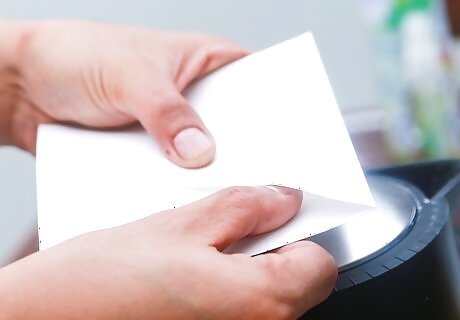
Ease open the envelope. Wait for a few seconds after removing it from the steam and then, in much the same way as with the stove method, gently slide a flat blade under the seal to open and release it. Be very careful not to tear it, and if it doesn’t come easily give it a little more time in the steam and try again.
Using an Iron
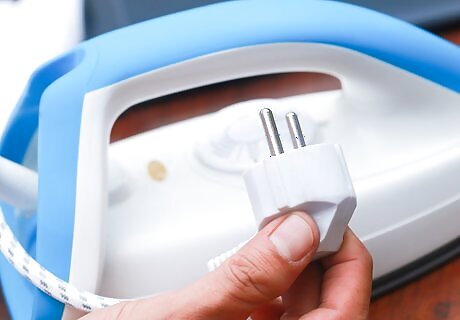
Put some water in your iron and plug it in. An alternative way to steam open an envelope, with less steam, is to use your clothes iron. It works in a similar way, but can be less messy and easier than using a kettle or a stove. Simply heat up your iron as if you were ironing some shirts and get your sealed envelope ready.
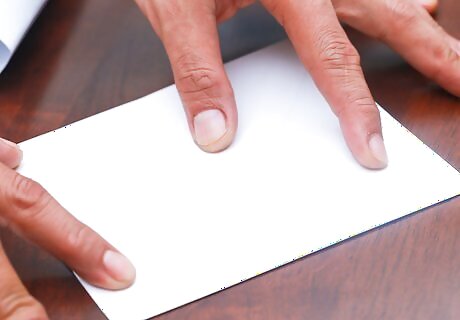
Put the envelope on a suitable surface. Check the surface is clean with nothing that might mark the envelope. Place your envelope on a surface that will not burn or scorch under a heated iron, an ironing board is ideal. Be sure that you have the side of the envelope with the opening flap and seal facing up towards the iron.

Iron your letter. With the iron on a medium-low temperature, pass it over the envelope backwards and forwards gently pressing down. The heat from the iron will melt the adhesive that holds the envelope's sealing flap down. If the iron temperature is high the glue will melt quicker, but you risk burning or scorching the envelope, so don’t rush it.

Using a flat blade, break the seal. As with the other steaming techniques, once the glue has been melted you can carefully slide a dull knife under the flap and ease the envelope open. It’s best not to use a sharper knife as there is a greater risk of you tearing or damaging the envelope. As always, don’t force it open if it is still sticking, instead give it some more time in the heat.
Resealing the Envelope
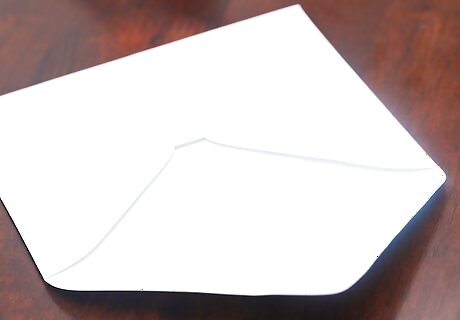
Wait for the envelope to dry. If you are trying to steam open an envelope, you probably want to know how to go about re-sealing it again. First of all wait for the glue melted by the steam to cool and re-gain it's stickiness.

Lick the glue and seal it as normal. The first thing to try is simply licking the adhesive strips and closing the envelope as you would normally. The glue should have re-gained it's tackiness and you should be able just press it closed. Bear in mind that you may have to hold the strip down for a little longer than usual to get it to stick.
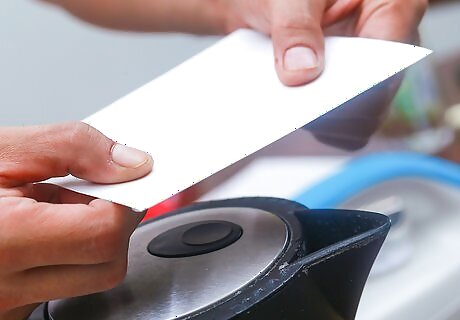
Re-seal with steam. Another way to reseal the envelope is to put the adhesive side of the flap back in the steam briefly. Get your water back to the boil and hold your envelope over the boiling water for around twenty seconds.

Gently push the sticky strip back down. While you hold it over the water, run your finger along the adhesive strip to close it down. Be careful not to crease it or allow too much stream to wet the envelope.

Take it out of the steam and hold it closed. Now remove the envelope from above the water and place down on a table or surface and apply pressure to the adhesive strip. You may have to hold it down for thirty seconds or so, or you could put something heavy like a book on top of it. Soon it should be re-seal and ready to go. If it does not all reseal on the first try put it back in the steam briefly and press it together lightly. Make sure not to rub the envelope, because when it is damp it may rub and tear.

Use a little glue. If all else fails, don’t panic! You can use some Elmer's glue, but make sure that you spread it around very well so that it looks like a normal envelope. You don't want to have some areas with glue marks staining the envelope, or soggy gluey patches. A light even covering should do the trick.




















Comments
0 comment